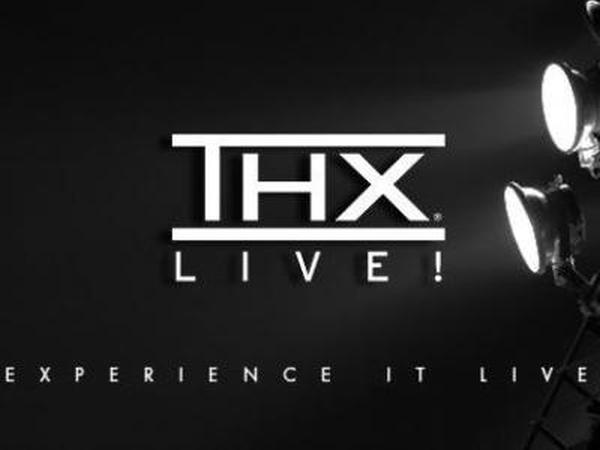Do Concerts Need THX Live! Certification?

All but our newest readers will recognize THX as the certification program that ensures that loudspeakers, surround receivers, and other products work well as a unified system. Depending on your viewpoint, THX has either expanded upon, or strayed from, its original mission to certify all kinds of things including soundbars, software, and cables. THX Live! (with exclamation point) is described as follows in the press release: "Through assessment, optimization, and certification of concert audio systems, the program will ensure concergoers get the best acoustic experience at any large-venue event."
The press release continues: "THX Live! is a live-entertainment certification program in which THX engineers review the audio system configuration of top performers and look for opportunities for acoustic optimization. THX reports their findings and works with the performer's sound engineers to identify solutions to audio problems and areas for improvement. The system is then calibrated according to THX best-in-class acoustic recommendations."
The Beyoncé website—which dutifully displays the THX Certified logo on its concert-dates page—lists various stadia, arenas, and domes. Those are huge venues and the press release does specify "large-venue" events. Does that mean THX Live! won't be used in, say, midsized theaters or small clubs?
"There is no cap on the size of the venue," says THX CEO Ty Ahmad-Taylor. "THX collaborates with tour engineers in the initial system design and configuration process to establish performance goals and tuning targets for the artist. To accommodate size, layout, acoustic and other variables that exist among venues, the tour audio systems are designed to be adaptable to meet the original specified targets to ensure consistent performance at every venue."
While I don't want to prejudge THX Live! before it's gotten out of the gate, I suspect it can have only partial success because, as described, it fails to ameliorate one of the biggest acoustic obstacles: the audience's ears.
I can't go to a rock concert without plugging my ears. Otherwise my eardrums rattle and ring, overmodulated and overwhelmed by sheer volume, and the music becomes an almost undifferentiated mush. I can actually hear better if I plug my ears. When I was younger I would shove balled-up ticket stubs, cigarette butts, or anything else that came to hand into my ears.
Nowadays I use silicone gel plugs, which double as hearing protection on the mean streets of New York. You can buy them at any large pharmacy. I can vary the volume level and frequency response by adjusting the seal. I would welcome a THX-certified earplug designed to cut the volume while delivering a semblance of what artists and their engineers intend.
THX might go a step further and develop an active earplug. In addition to a strong protective seal, I'd like to have app-controlled volume control, tone controls, and listening modes for different kinds of music. I also want a frequency-centered dynamic range control to momentarily notch out loud and spectacularly painful whistles emitted by inconsiderate jerks sitting behind my ears.
Finally, I'd like a THX-certified technician to measure my hearing, plot a frequency response curve, and compensate with EQ to produce a flat response. While this might sound more like a hearing aid, what I really want is a hi-fi hearing aid that would not increase level, but reduce it, thus protecting my ears, while compensating for flaws in both live sound and my hearing.
What problems do you have with concert sound? Do you think THX Live! might help?
Audio Editor Mark Fleischmann is the author of Practical Home Theater: A Guide to Video and Audio Systems, now available in both print and Kindle editions.













































